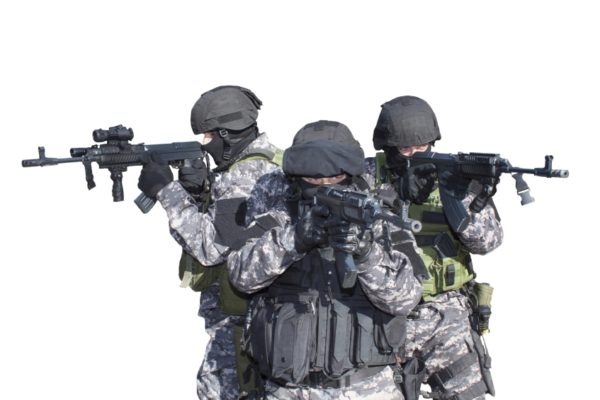After ordering the small contingent of remaining U.S. forces out of Syria, President Donald Trump explained that he was honoring a campaign pledge to stop our “endless wars.”
The decision raises many questions, but the more immediate result is that withdrawing support from the hard-fighting Kurds increases the danger to Americans from the Islamic State group (ISIS) and increases the likelihood that future threats from this region will (again) require a larger American commitment.
The hard reality is that neither Trump nor the wider national security community can decide when America’s wars end because, as all soldiers know, “the enemy gets a vote.” We did not start the wars with al-Qaida or ISIS, and we cannot unilaterally declare a truce on behalf of adversaries who remain intent on killing our people.
Americans don’t like sending Americans to fight in distant lands, but there is a multigenerational requirement to secure the U.S. against terrorists. Sending small groups of advisers to help those who are willing to fight is an excellent alternative.
The military calls this acting “By, With and Through,” allies. Our relationship with Kurdish forces in Iraq and Syria has been one of the most effective examples of this approach in history. That said, the difference in this support and U.S. commitment to total war has to be explained to an American electorate, which is understandably skeptical of our overseas commitments.
The quick, violent and highly successful campaign to deny al-Qaida sanctuary in Afghanistan after the Sept. 11, 2001, attacks, which was very much “By, With and Through,” morphed into America’s longest war.
We know we didn’t have to go down a path that ended with the U.S. “owning” the situation in Afghanistan. We also chose to fight a war with Saddam Hussein, which many Americans believe was a mistake that led directly to the rise of ISIS.
In short, while it is wrongheaded to say we “overreacted” to the Sept. 11 attacks, it is appropriate to ask whether our subsequent policies were wise.
However, we must first understand that al-Qaida and ISIS remain at war with us. In framing our choice as between “war” and nonengagement, we repeat mistakes of Presidents George W. Bush and Barack Obama.
Bush and his administration listened when warned of the dangers posed by al-Qaida. The “plan” was to complete ongoing policy reviews. But before they could do so, al-Qaida struck. (Again, the enemy gets a vote.) It took the Sept. 11 attacks for the Bush team and the broader public to grasp Osama bin Laden’s intent and capabilities.
Although many tactical lessons were learned from 9/11, two relevant strategic lessons understood by the Bush team may be fading from memory. First, if an international actor declares war on you, believe them. Second, even if we have no other interests, the U.S. cannot allow semi-governed parts of the planet to become sanctuary for those who intend to do us harm.
The Obama administration believed we should never have gone into Iraq, which no doubt influenced their reaction to Iraqi gamesmanship by ordering U.S. forces home in 2011.
Many argued that whether we should have or not, we had invaded Iraq, thereby making it vulnerable, and that we should at least leave advisory teams and enough airpower to assist the young Iraqi army in responding to attacks by Islamic militants.
History does not reveal its alternatives, but in the end, ISIS swept through northern Iraq and Syria, declared a caliphate, issued a highly successful call for foreign volunteers, and launched a global terrorism campaign.
In 2014, Obama re-introduced troops and air power into Iraq, where our forces confronted not a terrorist group, but a conventional army holding territory.
The most effective and cheapest way to protect us from the multigenerational threats posed by these terrorist organizations, while avoiding endless deployments of U.S. forces, is to support state and nonstate allies who are willing to fight. But after what we just did to our former friends, the Kurdish fighters in Syria, one has to wonder who will answer our phone call when we need help in the future.
J. Paul Pope is a professor of practice at the LBJ School of Public Affairs at The University of Texas at Austin.
A version of this op-ed appeared in the San Antonio Express News, Corpus Christi Caller Times, and the Austin American Statesman.




